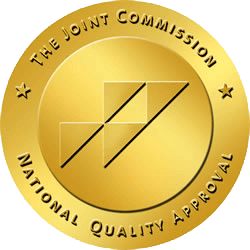Are you worried about your teen’s drug or alcohol use? At first, it may be tempting to excuse your teen’s drug use as part of an experimental phase. Smoking marijuana or drinking beer at a party is normal teenage behavior, right? Even though it may be easier to look the other way, excusing your teen’s behavior can set the stage for bigger substance abuse problems in the future. Consider this: your teen’s brain is a lot like a car with a fully functioning gas pedal (the brain’s reward system), but no brakes (the brain’s prefrontal cortex). This means that teens lack the ability to effectively regulate their behavior. Teens are highly motivated to pursue pleasure, but have extremely limited judgment and decision-making skills. This combination can set the stage for long-term substance abuse problems.
Principles of Teen Addiction Treatment
Most individuals start abusing drugs and alcohol when they are teenagers, according to the National Institute on Drug Abuse. By the time teens are high school seniors, 70 percent admit to trying alcohol and more than half say they’ve tried an illegal drug1. Drugs hijack the brain’s natural reward/pleasure process. Together with genetic and environmental risk factors, teen drug use can go from casual experimentation to full-blown addiction overnight. If you suspect your teen is abusing drugs or alcohol, immediate treatment is absolutely critical. The National Institute on Drug Abuse established the following guidelines in response to the growing need for effective teenage substance abuse treatment. These are four useful principles for teen substance abuse treatment:
1. Treat Teens as Soon as Possible
Drugs can have a long-lasting impact on the adolescent brain. Drug use can also interfere with a teen’s ability to develop positive relationships with family and peer groups and perform well in school. Early identification and intervention is critical.
2. Teens Can Benefit from Substance Abuse Treatment Even If They Are Not Addicted to Drugs
Even casual drug use and experimentation can have a harmful impact on a teen’s developing brain. Parents must be careful not to underestimate the significant impact substance use can have on the brain and body. Even if teens are simply experimenting with drugs, enrolling in a substance abuse treatment program can help reduce the risk for developing long-term addiction.
3. Talk to Teens about Drug Use During Annual Medical Visits
If you are worried about your teen’s drug or alcohol use, ask your teen’s pediatrician to talk to your teen about substance abuse during an annual health care appointment. A health care provider has access to standardized screening tools to assess the severity of your teen’s drug use and either provide an onsite brief intervention or refer your teen to a substance abuse treatment program.
4. Teens with substance abuse problems rarely believe they need help.
As a parent or caretaker, you can use your status as a teen’s legal guardian to help them enter a treatment program even if they are reluctant to do so at first. Research shows that treatment can still be effective even if teens initially do not wish to enter the program. If you suspect your teen is using drugs or alcohol, don’t wait to seek treatment. Call us at 877-466-0620 and take the first steps towards helping your teen avoid a lifetime of addiction struggles.
References:
- National Institute on Drug Abuse. “Principles of Adolescent Substance Use Disorder Treatment: A Research-Based Guide” 17 Jan 2014. https://www.drugabuse.gov/sites/default/files/podata_1_17_14.pdf


